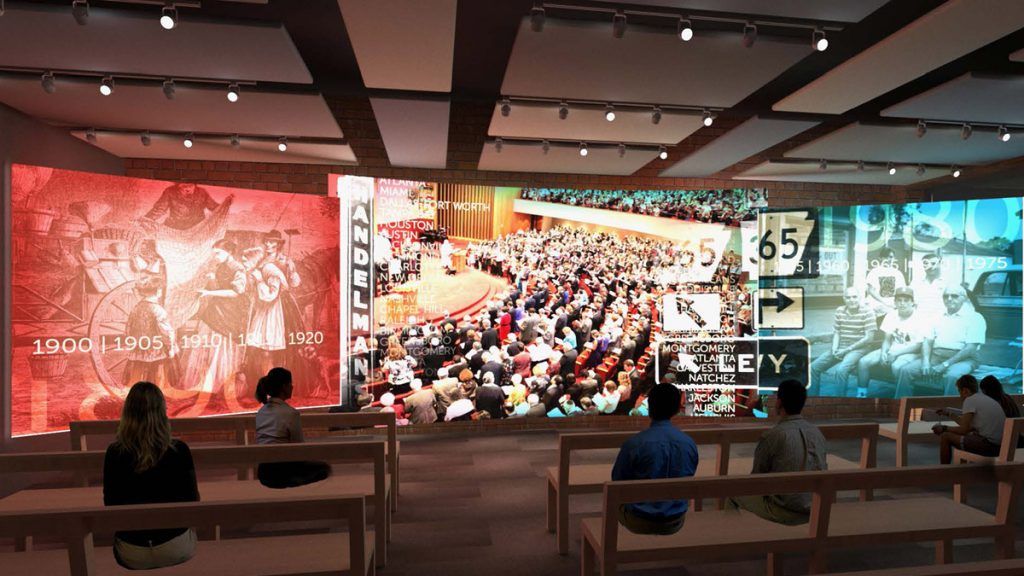Planned Museum Will Spotlight Jewish Communities in the American South
Set to open in New Orleans next year, the cultural institution will showcase stories spanning 300 years and 13 states
:focal(536x297:537x298)/https://tf-cmsv2-smithsonianmag-media.s3.amazonaws.com/filer/53/e7/53e77d2c-2c48-4b9d-9d2d-b8da2291aedd/jewish_museum_1.jpg)
A museum set to open in New Orleans next year will showcase the diverse experiences of Jews in the southern United States through more than 7,000 artifacts touching on topics ranging from food culture to anti-Semitism and racism, reports Stacey Plaisance for the Associated Press.
As Kenneth Hoffman, the Museum of the Southern Jewish Experience’s (MSJE) executive director, tells the AP, most Jewish immigrants to the U.S. settled in the Northeast, but thousands found homes in the South during the 18th, 19th and 20th centuries.
“This can tell us about the history of the South in a way that we haven’t looked at it before,” he says. “It can tell us about diversity and the importance of diversity for strengthening not only our Southern communities but America in general.”
Among the items slated for display are spice boxes, prayer books and tzedakah boxes used to collect money for charity. One exhibition will feature a patchwork quilt made by Jewish women in Canton, Mississippi, in 1885 to raise money to build a synagogue. Visitors will be able to use an interactive station to digitally create their own quilt squares and combine them with those made by others.
Other highlights of the collection include a prosthetic leg owned by a Russian Jewish immigrant to Louisiana, two synagogue organs from a now-closed temple in Mississippi and a sign advertising an Arkansas hotel’s “up to date kosher kitchen,” according to Josefin Dolstein of the Jewish Telegraphic Agency (JTA).
The new museum is a revival of a center of the same name that opened in Utica, Mississippi, in 1986 but closed in 2012. Per the MSJE’s website, the original location at Jacobs Camp, a summer camp for Jewish children, made the museum a good resource for young campers from around the Deep South but difficult for the general public to access. A planning committee picked New Orleans as the new location due to the Louisiana city’s vibrant Jewish population and tourist economy, as well as the presence of Tulane University’s Jewish Studies program.
In a video produced by the AP, Hoffman says the original museum worked to preserve memories of small-town Southern Jewish life as many Jews moved to larger cities. In its new iteration, the cultural institution will expand to cover the broader Southern Jewish experience, incorporating stories spanning more than 300 years and 13 states.

Earlier this year, Hoffman told the Jewish News Syndicate that striking differences exist between Jewish experiences in the South and northern cities.
“Southern Jews have more often been a part of their communities, rather than apart from them,” he said. “This contrasts with America’s urban immigration centers where Jews formed more insular enclaves. The contributions they made and the acceptance they received attest to something unique in the Southern heart.”
Museum Chairman Jay Tanenbaum tells the AP that the museum reflects thousands of stories like that of his own family. Tanenbaum is the great-grandson of a Jewish immigrant from Poland who settled in Dumas, Arkansas, and ran a cotton gin.
As the JTA noted in 2019, the majority of Jewish immigrants in the South settled in small towns during the 19th century. Over the following century, however, many younger Jews left their hometowns to study and work in cities.
“Though some Jews remain in small towns today, many synagogues have closed or are on the verge of shutting down,” the JTA added.
The museum hopes to attract both Jewish and non-Jewish visitors. One of its goals is to promote a wider understanding of Jewish history and culture, particularly in light of the disturbing rise in anti-Semitic incidents documented by the Anti-Defamation League in 2019.
“[I]f we put together a museum and have lots of visitors who are not Jewish who come to understand the similarities and the way we all work together and the loving relationships, we think that is maybe the best thing we can do to promote the safety and security of Jewish communities and Jewish individuals,” Tanenbaum says.
The museum’s exhibitions will also showcase connections between Jewish and black communities, from Jews who were slave owners to Jewish involvement in the civil rights movement.
Originally slated to open in fall 2020 but delayed by construction and Covid-19, the museum now plans to open its doors in the first quarter of 2021. A specific date has not yet been set.
/https://tf-cmsv2-smithsonianmag-media.s3.amazonaws.com/accounts/headshot/Livia_lg_thumbnail.png)
/https://tf-cmsv2-smithsonianmag-media.s3.amazonaws.com/accounts/headshot/Livia_lg_thumbnail.png)